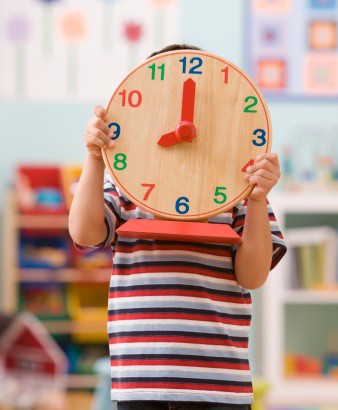Children can understand the concept of time from 6 years of age
updated the 11 January 2016 à 11:27Here’s a new French study that reveals how children are able to grasp the concept of time from a young age.

A study by Inserm unit 1178 * (University of Paris-South University Paris Descartes) sought to know when and how children acquire the concept of hours, minutes, months, or even seconds and years. In short, when do they really understand the concept of time passing? “So far, this issue has been little explored,” says Georges Dellatolas, neuropsychology specialist of children and co-author of the study. “Most of the experiments mainly assessed the children’s ability to reproduce or to classify time intervals of less than a minute.”
TO UNDERSTAND TIME, WE MUST BE ABLE TO INTERPRET the NUMBERS
A hundred children aged 6 to 11 years enrolled in the Paris region participated in this study. They first completed a specially designed questionnaire to assess their knowledge of time. Thus, they had to evaluate such differences between different ages of life, read the time on different substrates and indicate the time remaining before their next birthday. The second part of the research was to establish the link between them and their knowledge of time and numbers. “The main lesson is that this knowledge is acquired mainly between 6 and 8 years, and is closely linked to children’s digital literacy”, summarizes Georges Dellatolas. This includes the main four factors: “academic” knowledge of numbers (that is, the ability to read, write and calculate), the ability to “match a number at a distance”, the “workingmemory” (essential to compare numbers presented orally), and finally the ability to call a number in a context. Concretely, for example, the child is able to say that “ten” is a significant amount if we talk about the number of children in a family, but little if it is the number of leaves on a tree.
The researchers now want to replicate this study on a larger number of children, including those suffering from difficult diseases that affect temporal information (dyslexia, certain brain tumors…).
*National Institute for Health and Medical Research.
Source: Labrell F. et al, Time knowledge acquisition in children aged 6 to 11 years and Its relationship with numerical skills, J Exp Child Psychol.
Maureen Diament
Marie France Asia, women's magazine



